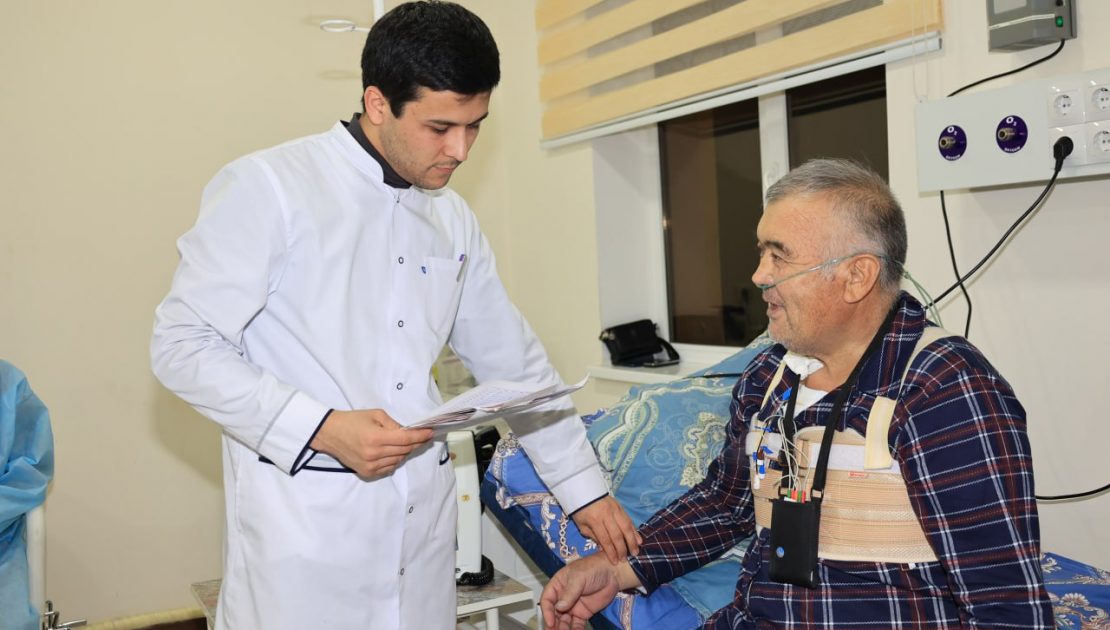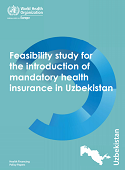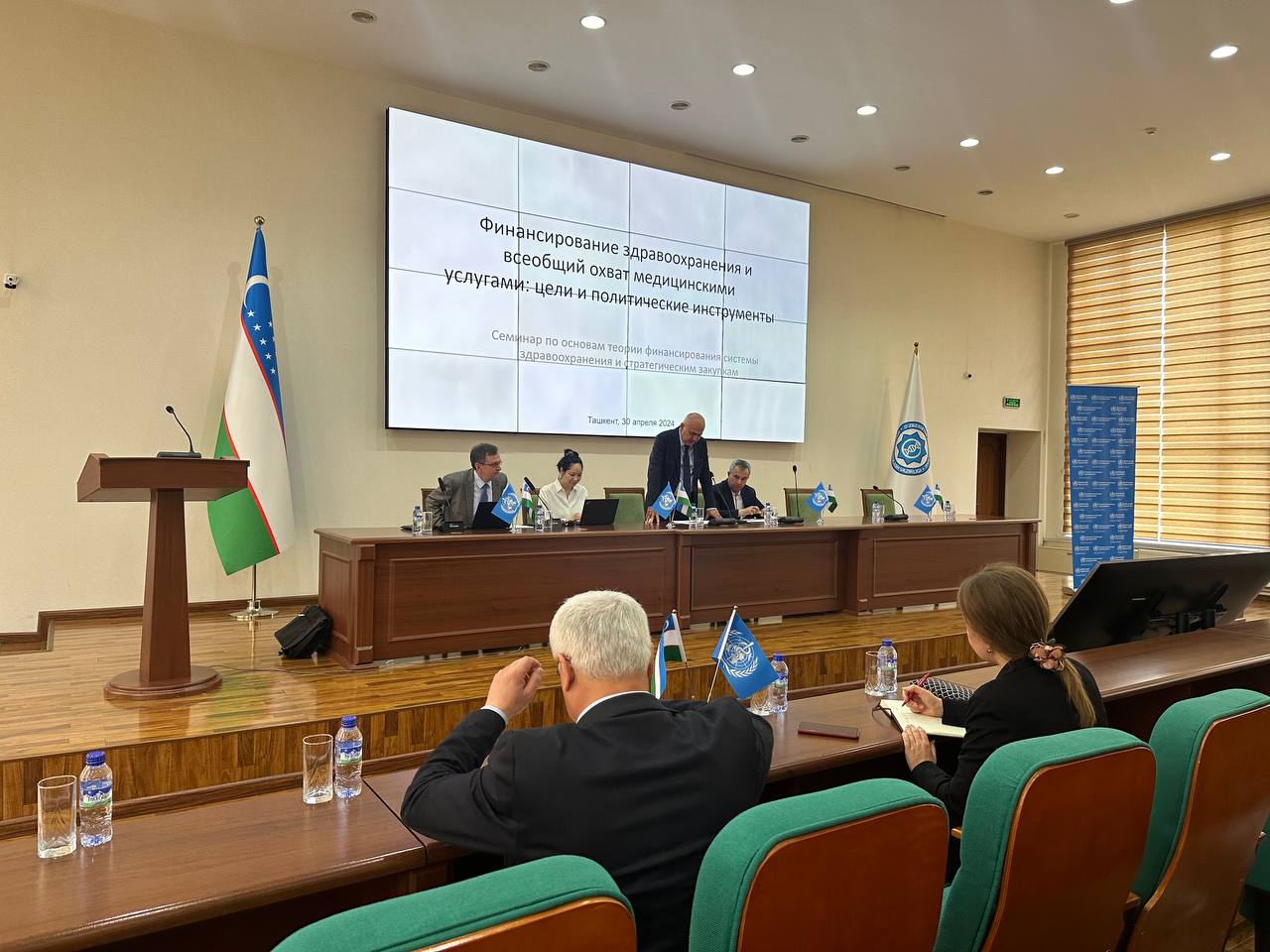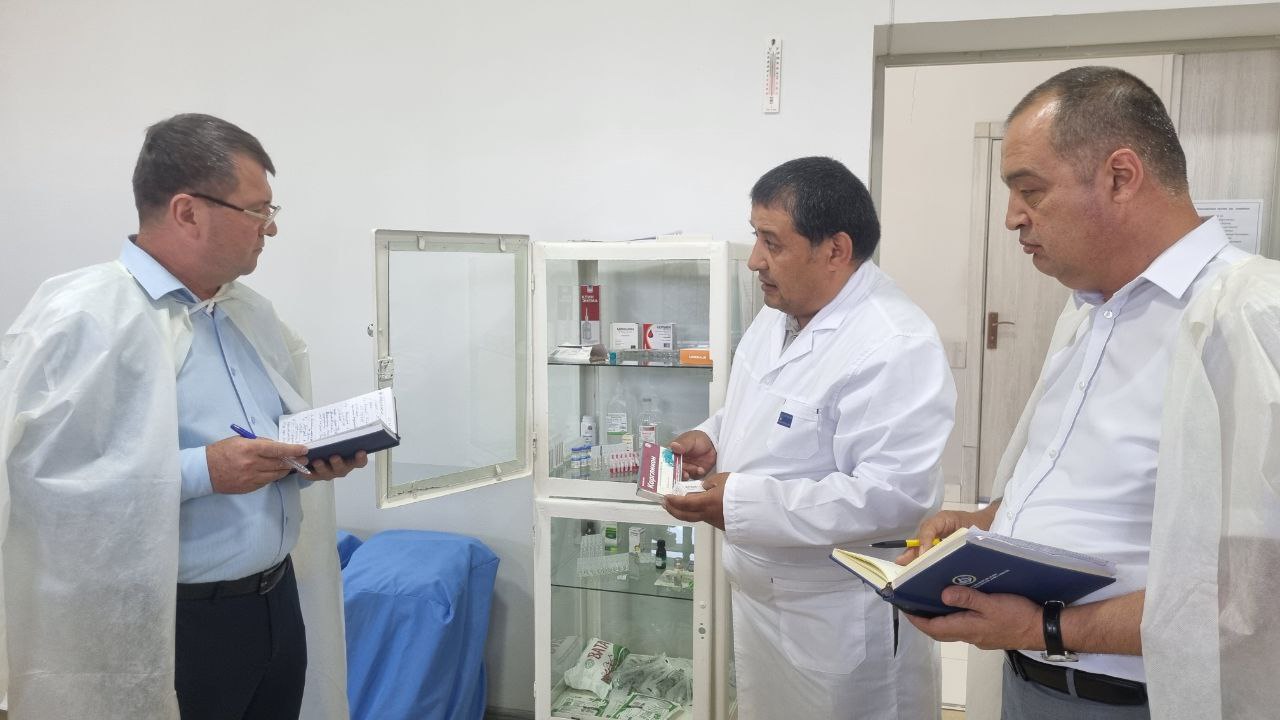Uzbekistan is doing a phased implementation of Mandatory Social Health Insurance (MSHI) reform. The first to start was the Syrdarya region in 2021, and several other regions started in 2023. A representative of the State Health Insurance Fund in the Samarkand region, Davron RAZZOKOV, gave an interview to describe progress in Samarkand.
– What is being done in your region to implement mandatory state health insurance?
Davron RAZZOKOV, chief specialist of the State Health Insurance Fund:
– We started talking about the state health insurance system in our country a couple of years ago. The Syrdarya region was chosen as an experiment (first pilot region – note by the author). Preparations for implementation have also begun in our region (Samarkand region). To implement the project in the Samarkand region, the Fund signed contracts with six healthcare organizations in the region. These are: the regional multidisciplinary medical center, a children’s multidisciplinary medical center, a trauma hospital, a cardiology clinic and an eye hospital. 422 patients received free treatment under the new state health insurance in these healthcare organizations over 9 months of last year. Since 2023, the fund has allocated 42 billion soums to provide medical care to more than 4,000 patients.
– Who are these people who received free medical care?
– Certain categories of people were given the advantage of receiving free medical services under state insurance. These are orphan children, persons with group I and II disabilities, war veterans and persons equated to them, officially unemployed, retired due to age, participants in the labor front (labour veterans from World War II – note by the author), pregnant women with pathologies, persons with sexually transmitted diseases, oncological and tuberculosis patients and some other groups. These were people from the defined 16 categories who needed priority help. The main purpose of introducing a health insurance system is coverage of all segments of the population with high-quality medical services as part of the insurance package. Before signing contracts with healthcare organizations that belong to the health department, a Roadmap was developed, which indicated all public and private healthcare organizations in the region. The capabilities of healthcare organizations to provide the required volume of medical services included in the guaranteed package, their material and technical base (medical equipment availability), and availability of qualified health workfoce have been carefully studied.
The journalist asked about how effective the insurance-covered care was from the patients at the Samarkand branch of the Republican Specialized Medical Center for Cardiology, where 491 high-tech operations were performed at the expense of the Fund for 14 billion soums since the beginning of this year. A 64-year-old patient, Mr Nuriddin Daurov (on the photo) from Tailak district is one of those who underwent a surgery worth over 60 million soums – absolutely free. For three years, doctors could not give him an accurate diagnosis. All these years he was treated in various private clinics and rehabilitation facilities.
According to cardiologist Jahongir Gulomov, many operations at the center are expensive and until now, not all patients could pay for expensive medications that were part of treatment. With the introduction of the state health insurance system, people have a chance to recover.
Another benefit of having the state insurance is the gradual reduction of ineffective spending in healthcare, openness and transparency of the health services market and reduction of direct cash payments from people for their care (informal, under-the-table payments to stimulate providers to provide quality care – note by the author).
In 2027, Uzbekistan plans to have a nationwide implementation of the state health insurance.







